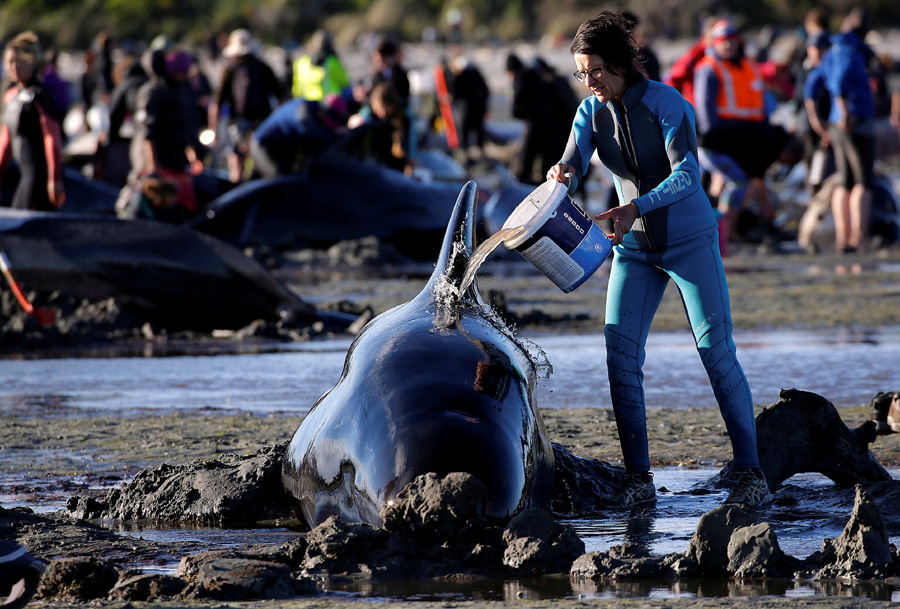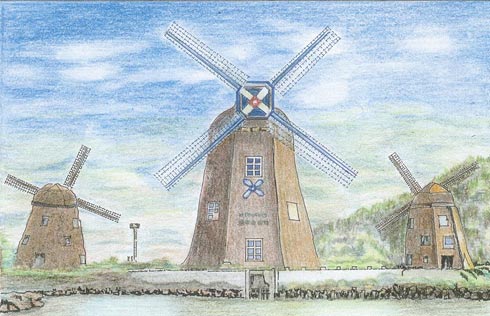New Zealanders race to save whales after 400 stranded
 |
|
Volunteers attend to some of the hundreds of stranded pilot whales still alive after one of the country's largest recorded mass whale strandings, in Golden Bay, at the top of New Zealand's South Island, February 10, 2017. [Photo/Agencies] |
WELLINGTON, New Zealand - It was the sound of soft sighs and cries in the half-light that first struck Cheree Morrison, and then as the dawn broke she began to see the extent of the carnage — more than 400 whales had swum aground along a remote New Zealand beach.
About 275 of the pilot whales were already dead when Morrison and two colleagues found them Friday on Farewell Spit at the tip of the South Island.
Within hours, hundreds of farmers, tourists and teenagers were racing to keep the surviving 140 or so whales alive in one of the worst whale strandings in the nation's history.
Morrison, a magazine writer and editor, stumbled upon the whales after taking a pre-dawn trip with a photographer and a guide to capture the red glow of the sunrise.
"You could hear the sounds of splashing, of blowholes being cleared, of sighing," she said. "The young ones were the worst. Crying is the only way to describe it."The adult and baby whale carcasses were strewn three or four deep in places for hundreds of yards, often rolled over on the sand with their tail fins still aloft.
Morrison's group alerted authorities, and volunteers soon began arriving in wetsuits and carrying buckets. Dressed in her jeans and sandshoes, Morrison waded into the water and did what she could to try to maneuver the surviving whales upright so they could breathe more easily.













